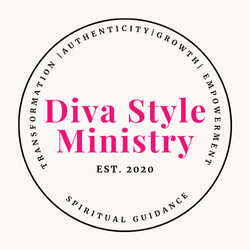It is natural for humans to feel a broad spectrum of emotions, some pleasant and some not-so-pleasant. What you do with these feelings is what makes or breaks you. Taking the time to observe and understand your feelings – a process known as validation – is the cornerstone of positive mental health.
When we validate ourselves, we demonstrate comprehension and acknowledge that our ideas, feelings, and impulses make sense. They might not be pleasant. They might not feel acceptable based on society’s rules. They could feel uneasy. They are, nevertheless, what they are.
It is more beneficial to understand our ideas and feelings – and in doing so, to validate them – rather than condemning them, stuffing them down, or searching for solutions right away.
According to LifeHack, “As more of us are struggling to attain society’s view of perfection, self-validation is becoming a hotter topic. But self-love and being your own biggest fan don’t happen overnight.”
Validating your feelings and ideas can enable you to relax more and handle them more successfully. Validating yourself will assist you in accepting and better understanding your inner workings, resulting in a stronger identity and an improved ability to manage difficult emotions.
Self-validation also aids in the discovery of knowledge. It is not simple to begin to self-validate. It is important to note that awareness and self-validation go together. Being aware of your ideas and feelings is required before you can validate those feelings. Here are five ways to validate your feelings:
Method 1: Define Your Feelings
I believe that recognizing and understanding your feelings through words and vocabulary is an excellent first step in self-validation. Clearly defining your thoughts and feelings in this way, I think, may help you feel validated merely via clear and distinct word usage, particularly in areas other than your thoughts.
The objective here is to find your way past thoughts that feel distant from what you’re feeling. I believe that “finding the right words” to express how you think gives it far more discipline, depth, and validity.
Consider starting (or continuing) a journaling habit to help you put your thoughts and feelings down on paper. Writing them out longhand helps you to make them more real and gives you a clearly defined space to hold them.
Method 2: Be Non-judgmental
I think it’s crucial to continue to be nonjudgmental in your understanding of these feelings – even if they don’t feel “perfect,” excellent, etc., they may still make sense, and you can develop a sense of control around them instead of being controlled by them.
By being true to the nature of your feelings, you may manage them with much more transparency, hanging on to what you feel is accurate, essential, and consistent while trying your utmost to let go of whatever you do not like, seems distorted/authentic, and so on.
Disliking your feelings doesn’t automatically mean that they are invalid, but you can, with some practice, determine more clearly what feelings are caused or worsened by the situation and what feelings may be affected by your self-definition and your self-concept.
Method 3: Be Mindful
I believe that comparable results may be obtained through various forms of meditation. For instance, mindfulness can help you feel the physiological sensations connected with your feelings without becoming bogged down in potentially inaccurate notions and thoughts.
In some ways, I believe this may assist in legitimizing your feelings as things that can be acknowledged because they exist. Some argue that you wouldn’t be able to sense it – to experience the emotion – if it didn’t exist. The fact that there is something there encourages you to see your feelings as being quite genuine.
Method 4: Using Old Memories to Validate These Feelings
Sometimes you will have ideas and feelings that are rooted in experiences from your past. Perhaps you’re frightened of others arguing because you have been harmed – emotionally or physically – by arguments in the past.
Validating oneself by saying, “It’s normal and acceptable that you’re frightened of disagreements because your older siblings used to harm one another during disagreements when you were a kid.”
You have a valid reason for disliking the situation, and the feelings that arise from the situation are also valid – there is a true and real reason for what you’re feeling. In this case, trust your feelings, and give yourself grace and space to examine old memories to see where the origin of the issue might be.
Method 5: Reflection
Reflecting on the incident, along with your feelings about it, means making it evident. Accurate reflection involves admitting and naming your internal condition – a feeling of agitation or dismay – to oneself for self-validation. Consider what caused the feeling and when the triggering event happened.
Think about how you experience the feeling in your body and analyze the behaviors that go with it. Reflecting entails observing and articulating, which are components of awareness.
Use the affirmations below to help you better understand and validate the feelings you’re dealing with.
Affirmations to Help You Validate Your Feelings
There is no wrong way to feel.
My positive thoughts turn into positive feelings.
I deserve to feel my feelings.
I am supportive of myself.
I am not overreacting.
I am not being dramatic.
It is okay to be sad.
It is okay to be angry.
It is okay not to feel positive feelings all the time.
I am not too sensitive.
I do not judge my emotions.
I don’t hide from my feelings.






